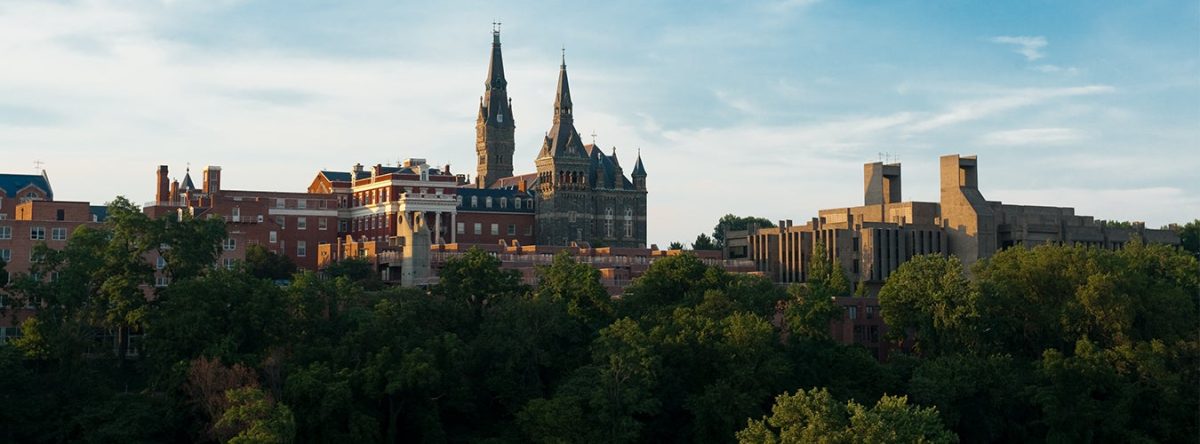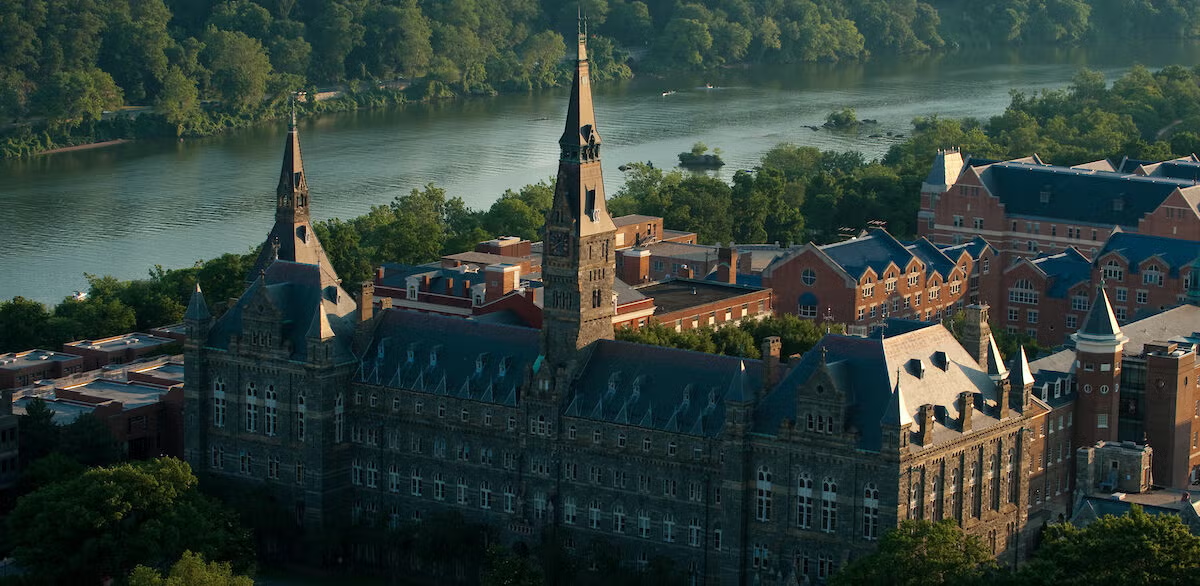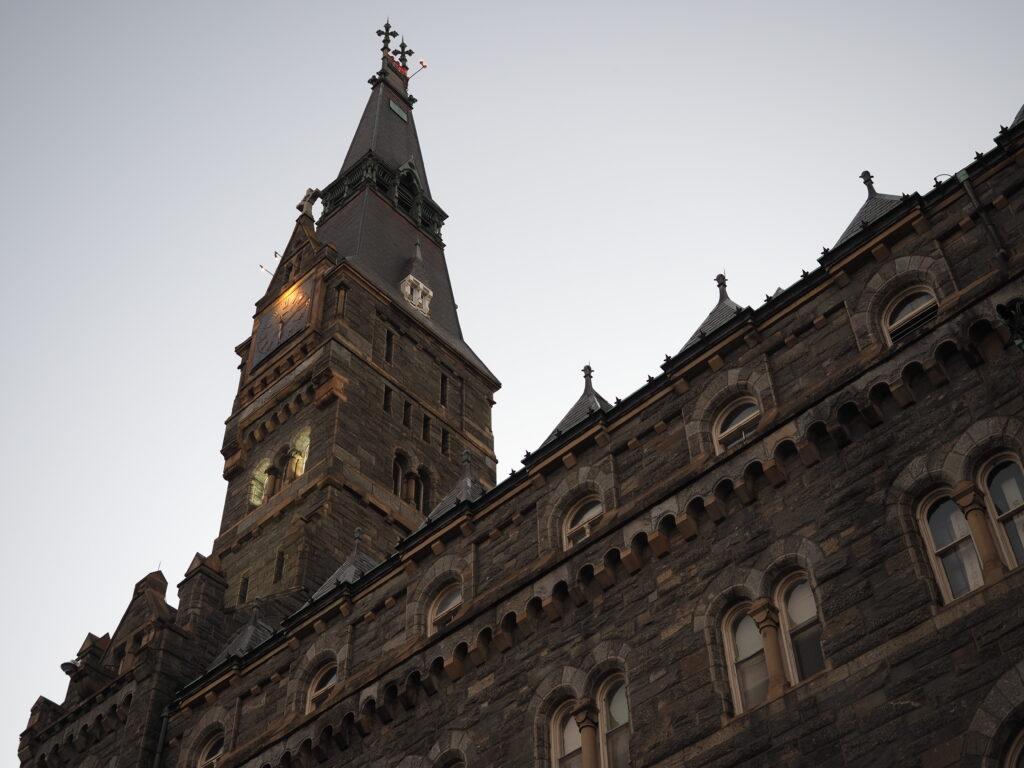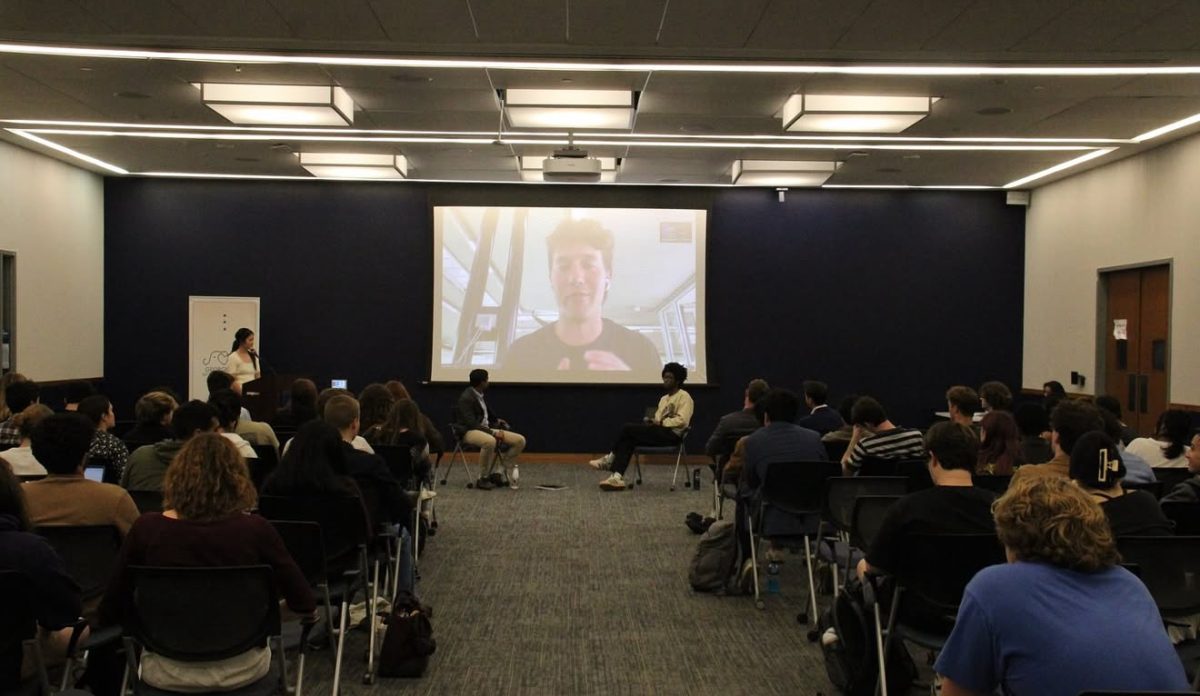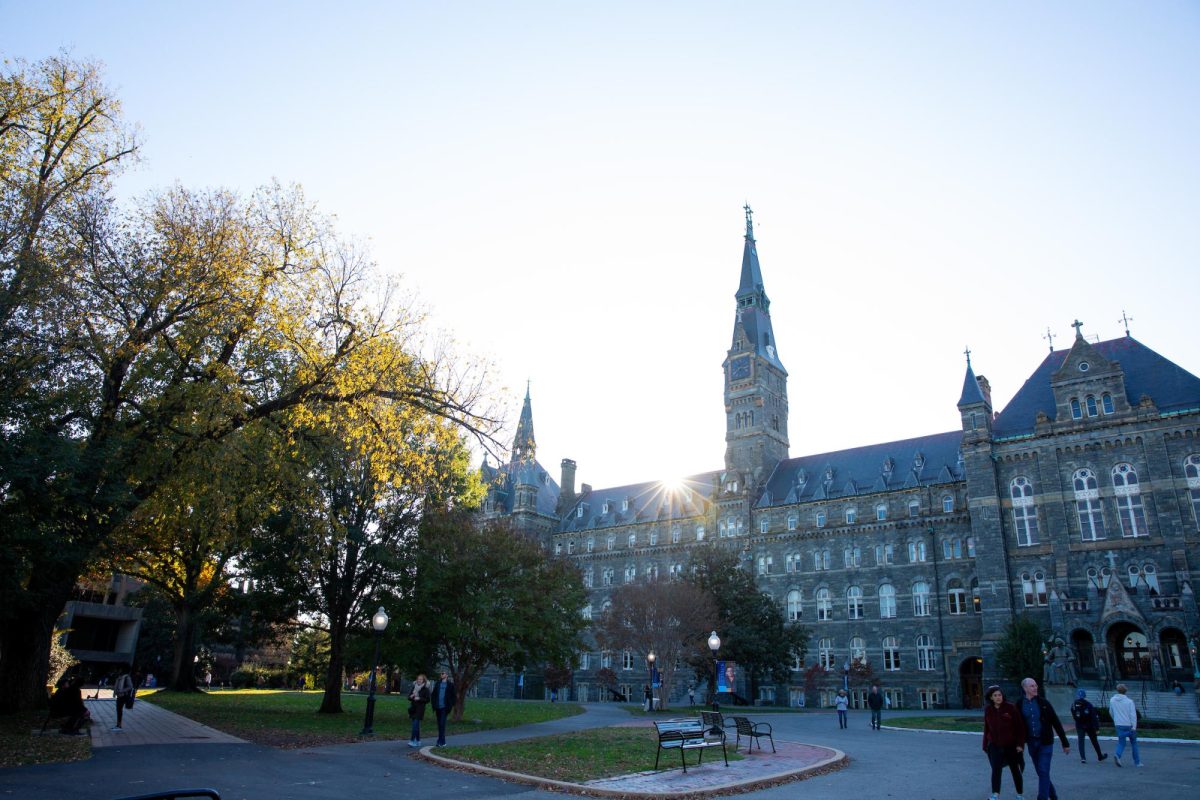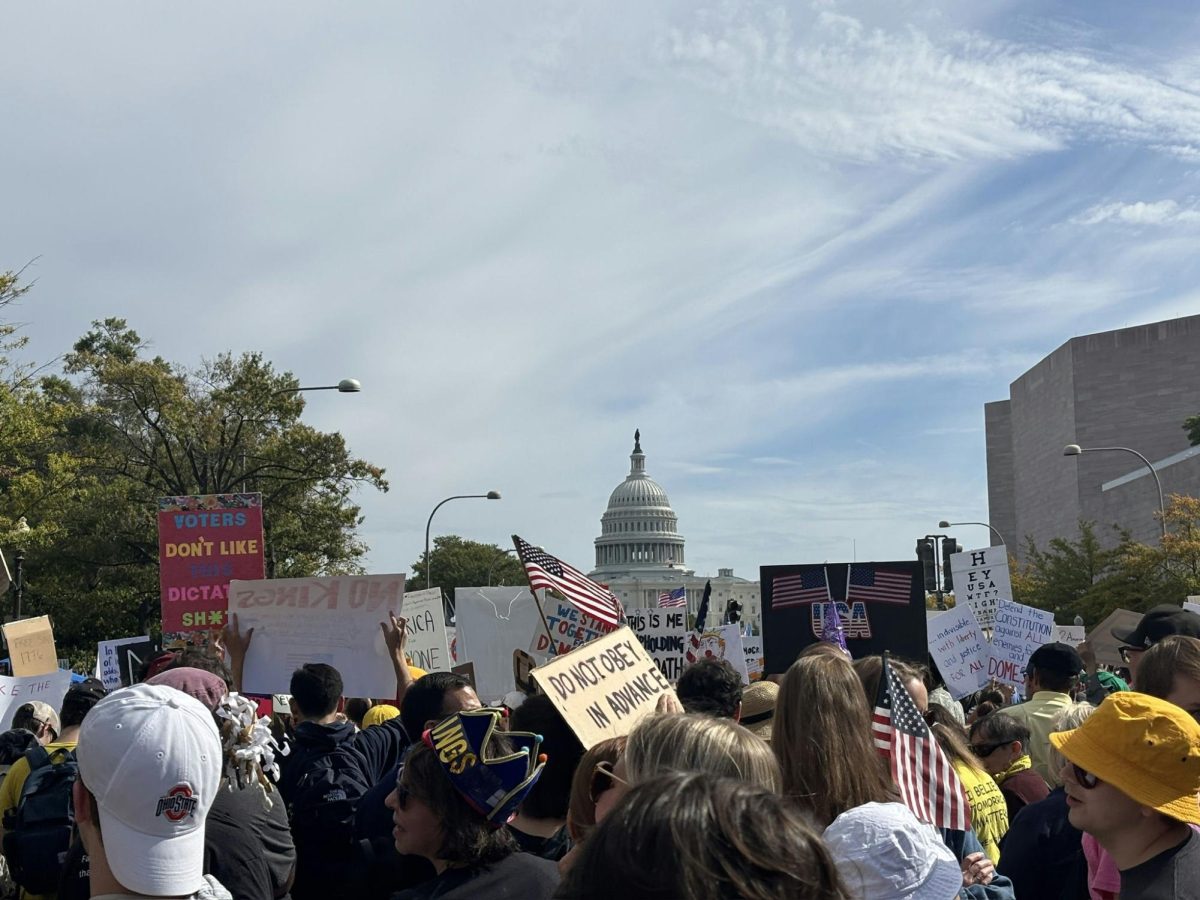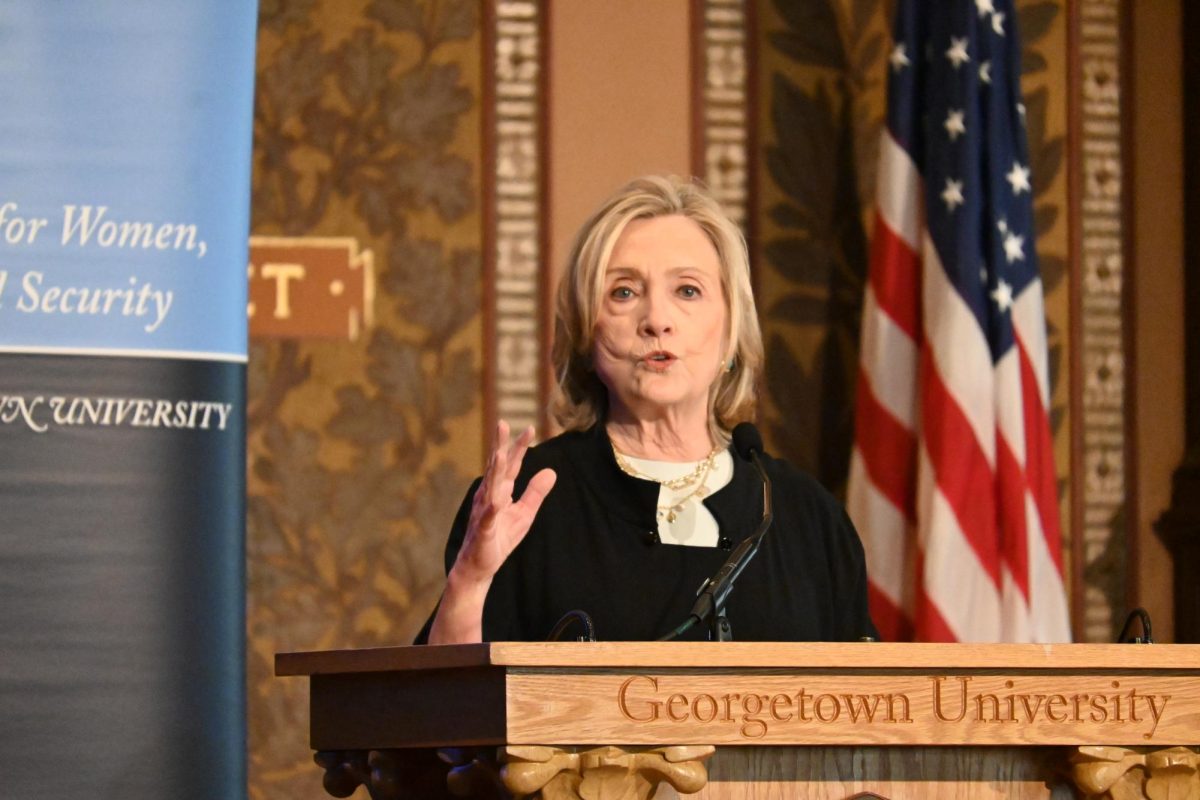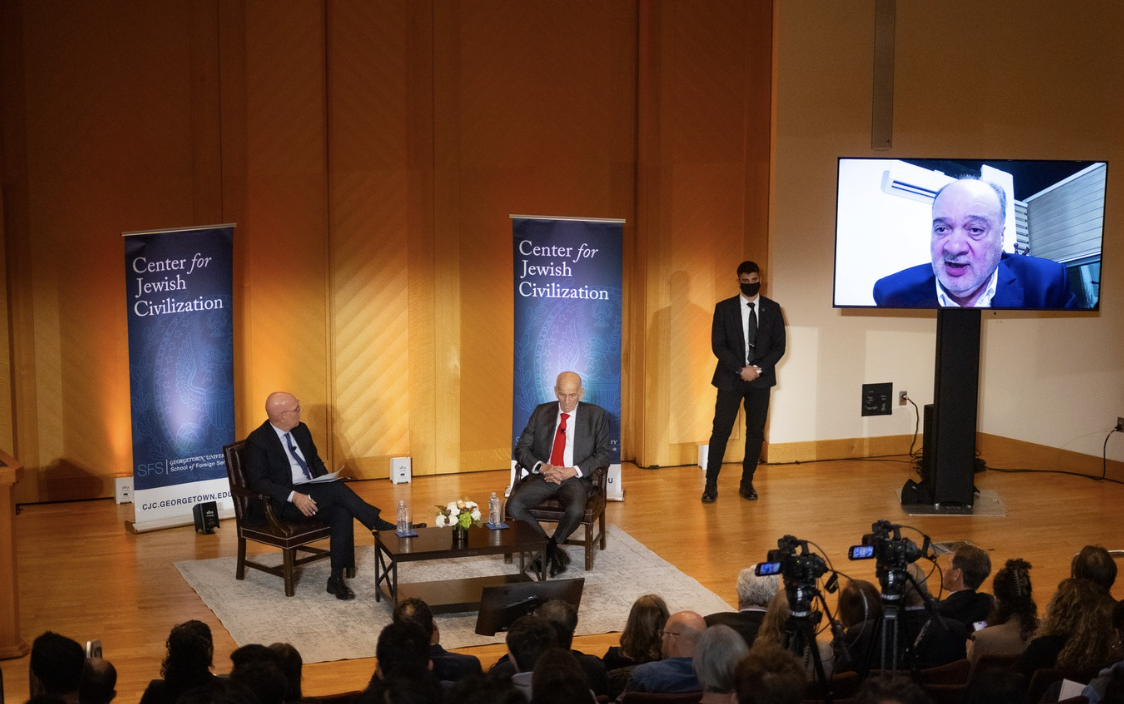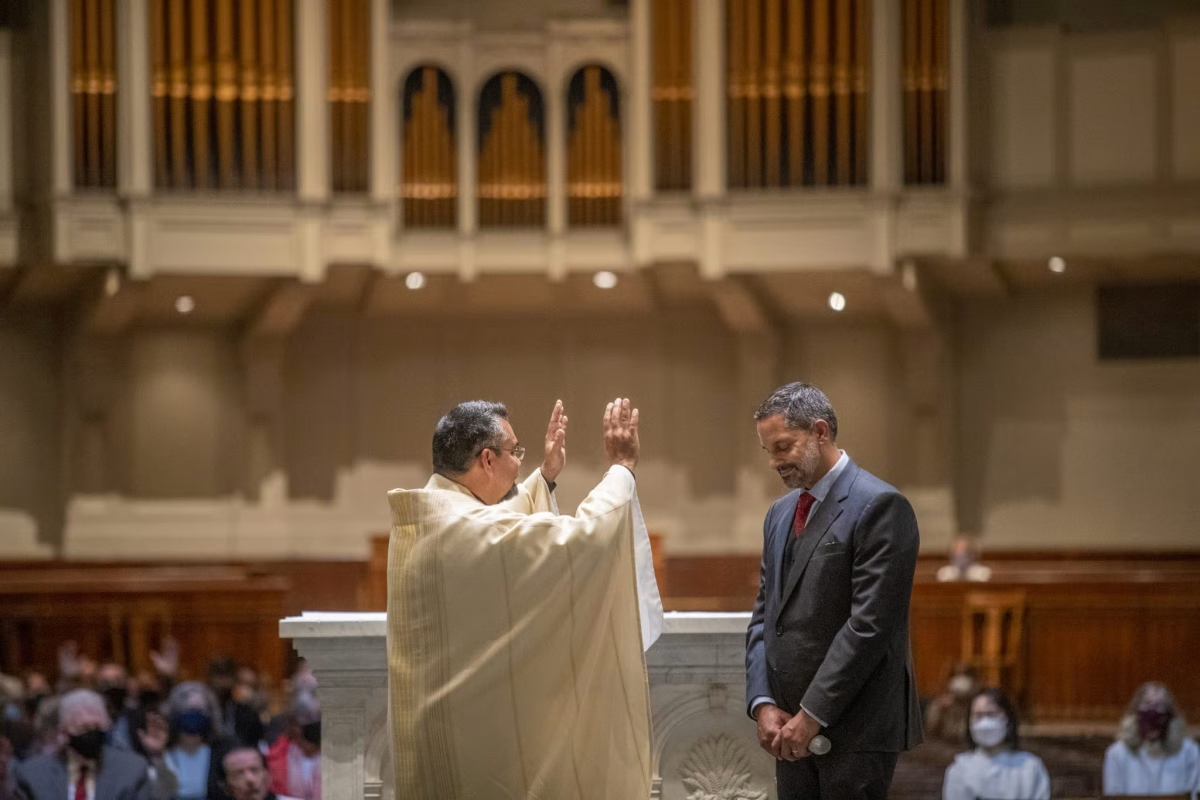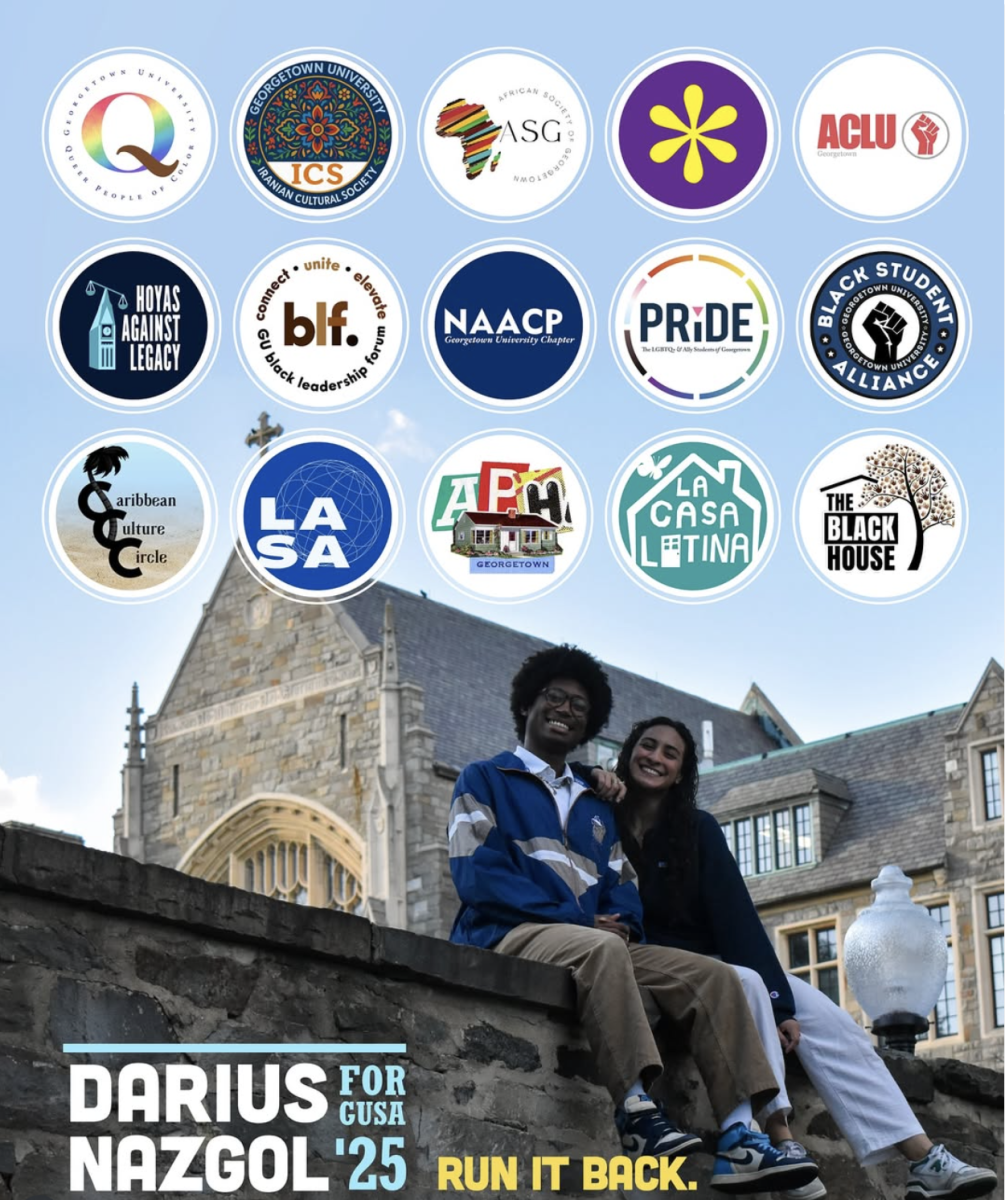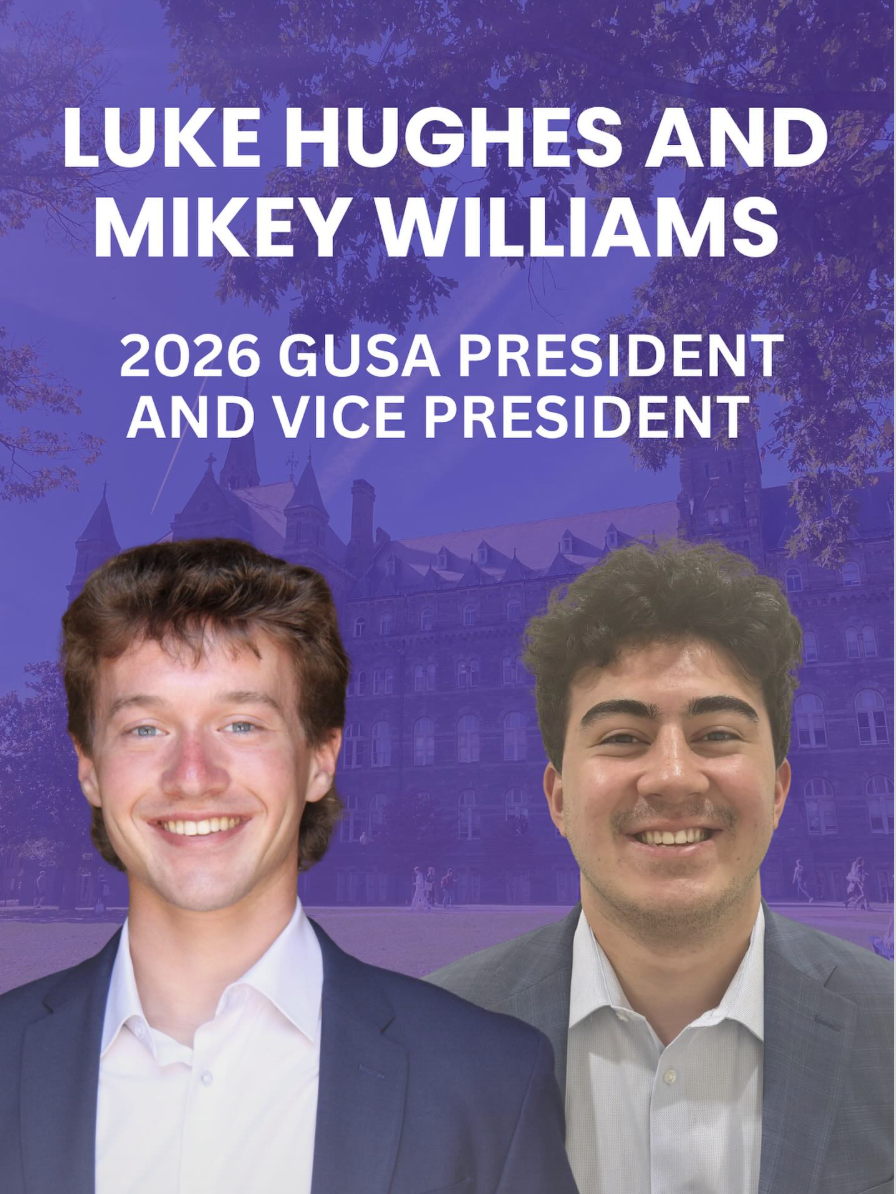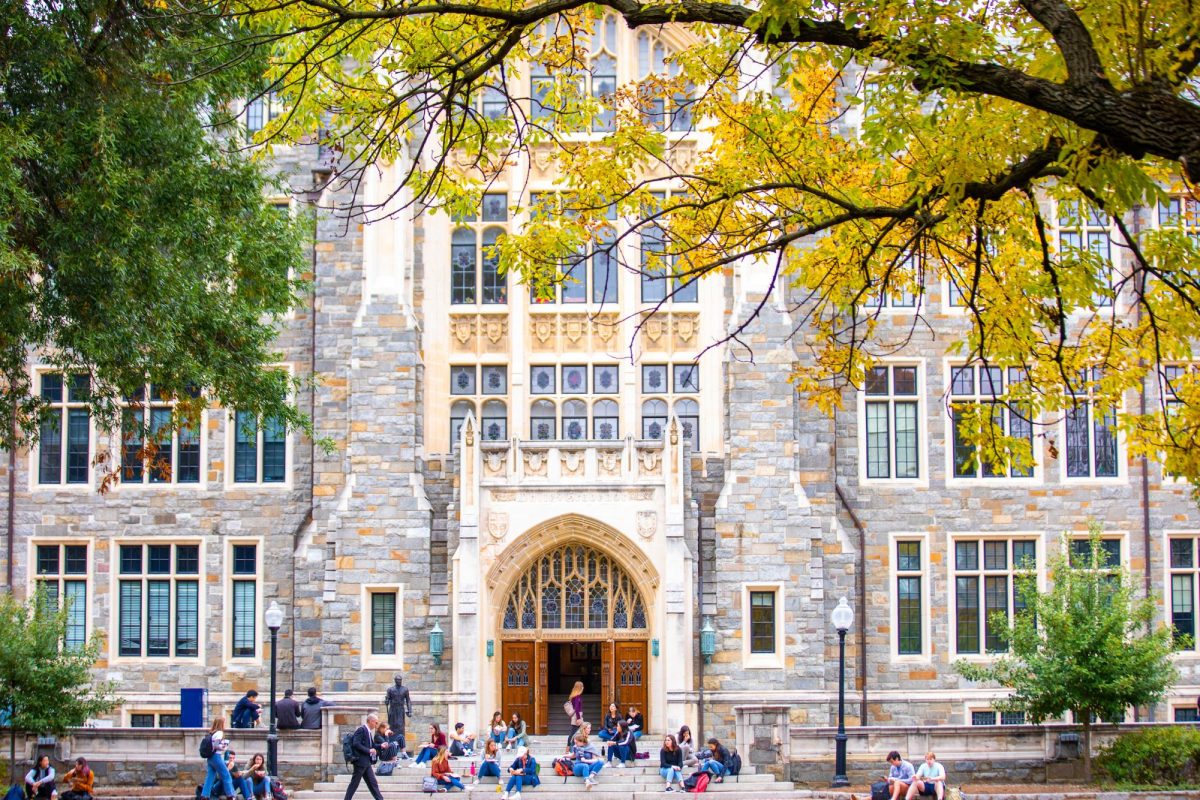Georgetown University undergraduate students voiced support for two referendums on university investment in the arts and campus noise policy that are on students’ ballots for the Georgetown University Student Association (GUSA) election, ending 8 p.m. Oct. 24.
The referendums —the Securing the Arts in Georgetown’s Expansion (STAGE) Act and the Restore Student Life Act — passed the GUSA Senate unanimously at an Oct. 17 special session and require at least 25% voter turnout and 50% approval to pass. The STAGE Act would encourage Georgetown to publicly acknowledge its academic and financial commitment to the arts, while the student life referendum would call for reform in the conduct process for noise violations and change weekend quiet hours.
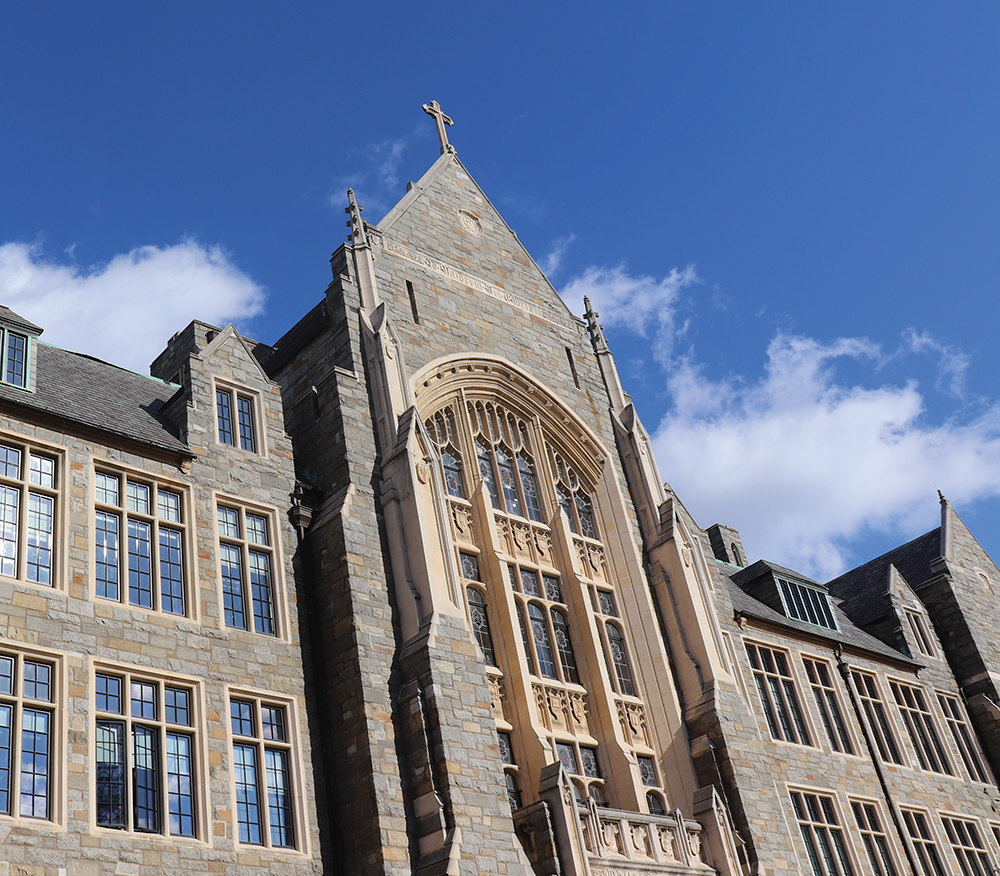
Student referendums are nonbinding and serve as recommendations to the university’s board of directors, which oversees university operations.
In addition to the public acknowledgment, the STAGE Act, which received endorsements from a number of performing arts student organizations, would urge Georgetown to ensure new buildings and developments on all campuses incorporate creative, rehearsal and performance spaces.
Elle Marinello (CAS ’28) — the publicity director for Mask & Bauble Dramatic Society, a student theater group that endorsed the referendum — said the STAGE Act would be critical to addressing student groups’ lack of space on campus.
“We really want to support other arts groups on campus, especially things like dance groups,” Marinello told The Hoya. “There aren’t a lot of spaces for them, or just not a lot of art spaces on campus. Even so, there are some spaces that are taken by the department or used for specific groups.”
“We want to actually help the arts expand on campus because it’s important to us,” Marinello added.
Daniel Tomas (SFS ’26), show director and former publicity director for Nomadic Theatre, said that, while the university has the resources to support the arts, this referendum will help show the student body’s commitment and the need for more spaces on campus.
“The university has the resources to give to us,” Tomas told The Hoya. “They just need to understand that theater groups on campus, that other groups on campus that dedicate themselves to the arts, require this access and that they should be promoting the arts in any capacity.”
A university spokesperson said Georgetown is working to identify more spaces for student groups and that current performance spaces are accessible for student organizations with access to benefits.
“Georgetown has a number of performance, practice and meeting venues available to students and to student groups with access to benefits.” the spokesperson wrote to The Hoya.
“University staff are in the process of working with other university colleagues to identify additional spaces where students may perform without adverse impact on the surrounding community,” the spokesperson added.
The Restore Student Life Act, the second referendum, would institute day-long warnings for noise violations that escalate to formal citations upon a second noise violation. The new policy would also remove noise violation warnings from students’ conduct records at the end of an academic year.
The resolution would also push weekend quiet hours from 12 a.m. to 1:30 a.m.
Madeleine Callender (CAS ’26) — co-director of the Student Advocacy Office (SAO), which advises students on disciplinary proceedings — said GUSA worked closely with SAO to create an equitable system for students facing noise complaints.
“Given SAO’s direct role in supporting students navigating the disciplinary process, we were able to offer some of the practical insight into how the current system actually operates, what specific issues are top-of-mind for students right now, and how to talk about them in a way that makes sense,” Callender wrote to The Hoya.
The Student Code of Conduct restricts “excessive sound which infringes upon the community’s right to reasonable peace and quiet during any time” on campus property. For off-campus housing, noise that can “be heard beyond the property line, taking into account the time and the nature of the activity generating the sound” is generally considered excessive.
Callender said the current noise violation process can lack proportionality and transparency, making students wary of engaging in social activity.
“Despite efforts to make the process feel more restorative and specific to the circumstances of each student, the sanctions received for noise violations can lack proportionality,” Callender wrote. “It’s frustrating for students to see that they hosted a six person movie night with friends that perhaps got a little loud, and they’re facing the same exact process and sanctions as someone who, maybe, had a much louder party gathering next door.”
“Of course, as Georgetown students, we want to be respectful of our neighbors and our living communities, but students also deserve to engage in social activities and traditional college life without constantly having to feel anxious and concerned that they aren’t sure exactly what standards they’re being held to,” Callendar added.
A university spokesperson said Georgetown may reasonably regulate the time, place and manner of expression to ensure that ordinary activities are not disrupted. The spokesperson also said that students should communicate with the Residential Education team — a division of the Office of Residential Living — before planning amplified-sound events.
“Residential Education staff frequently communicate with residents in university townhouses, Village A and other locations about maintaining a reasonable noise level, especially during periods of high activity such as Homecoming or Georgetown Day, as well as managing large crowds that loud music may attract,” the spokesperson wrote to The Hoya.
“As students plan events, they should be sensitive to the peace and privacy concerns of their colleagues, students and local residents,” the spokesperson added.
Students opposing the quiet hours extension anonymously created an Instagram account with the username @hoyasforsleep. The group also flyered on Red Square and Village A after the referendum was announced.
Brian Garrabrant (CAS ’28), who voted against the conduct referendum, said he supports reducing conduct violations but was against moving quiet hours.
“There are a lot of people who go to bed early and need to be up at a certain time, specifically on Saturday and Sunday,” Garrabrant told The Hoya. “There are people who wake up early on Sunday to go to religious services, such as mass or church — or of any faith group — or people on sports teams.”
“These two things are not mutually exclusive. I think that you should have more lenient noise violations, but I don’t think that you should push hours back to 1:30,” Garrabrant added.
Anna Holk (CAS ’27), a board member for the Georgetown Residential Assistant Coalition (GRAC), the residential assistant (RA) union, said she feels the current policy creates tension between RAs and their residents.
“I think it just makes RA interactions with residents feel more punitive when they can’t have a reasonable conversation before writing an incident report,” Holk told The Hoya. “It’s also made people less willing to voice when noise is bothering them because they don’t want any repercussions for their fellow students.”
“I think we all agreed that we want a code of conduct and a system that doesn’t put unnecessary burden on everybody involved and is fair and reasonable and helps all students feel comfortable with the conduct process,” Holk added.
Callender said that, while changing university policy can take time, student voices are essential for promoting change.
“We know that the traditional answer is that changing policy is a long-term process, and there’s many different Georgetown stakeholders involved, but we also know that student voices are an essential part of pushing for change at Georgetown and being willing to name what isn’t working is the only way to start that process,” Callender wrote.
“Ultimately, we hope that we’ll start to see changes that can ease student anxiety by clarifying the standards they’re being held to and recognizing the importance of allowing students to create meaningful community while on campus with their peers,” Callendar wrote.


